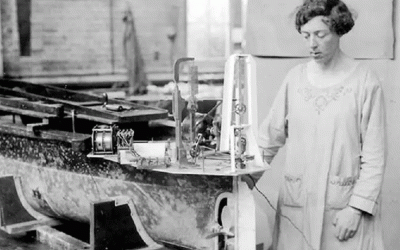Ship & Boat International: eNews August 2019
Plymouth City Council – take a bow. A fishing vessel safety scheme initially launched in Plymouth, UK in 2017 has been adopted as part of the nationwide Maritime Safety Action Plan, which was officially launched by the UK Government’s Department for Transport (DfT) on 1st July.
Located on England’s south-west coast, Plymouth has a storied maritime heritage and a well-earned reputation as a producer of numerous skilled fishermen, naval architects and cutting-edge marine technologies (see Ship & Boat International July/August 2019, page 7). The city’s council estimates that, to date, it has distributed 250 life jackets to UK fishermen, with 60 more still to be allocated as of early July. The original scheme was part-funded by the European Maritime and Fisheries Fund and the UK’s Marine Management Organisation.
Now, fishing communities across the rest of the country are set to benefit. Speaking in July, UK maritime minister Nusrat Ghani pledged that the government will pour nearly £1 million (US$1.3 million) into free training sessions and life-saving equipment for UK fishermen, in a bid to “eliminate all preventable deaths by 2027”. Highlighting the fact that 2018 saw six fishing fatalities in UK waters – incidents mainly attributed to vessel stability issues – Ghani continued: “Fishing remains the most dangerous industry in the UK, so we must keep working to reduce the risks crew members face…the extra training and equipment will mean fewer fishermen getting into danger at sea.”
The DfT will spend roughly £700,000 on lifesaving training and £250,000 on distributing 500 life vests across the UK fishing sector. The lifevests will be equipped with personal locator beacons (PLBs), the department confirms. The DfT adds: “Since 2008, the Maritime & Coastguard Agency [MCA] has spent £2.75 million to deliver more than 25,000 free safety training sessions to fishermen.” Additionally, the DfT will promote fishing safety via “a targeted radio campaign”, assisted seafarer charity Trinity House and seafood industry association Seafish.
Tudor Evans, leader of Plymouth City Council (pictured), greeted the DfT’s announcement, commenting: “Fishing is massively important to Plymouth – it’s where 13% of the national catch is landed.” Plymouth also supports around 900 fishermen and 500 fishing vessels, making it the largest hub for fishing crews in the UK. However, Evans added: “We are all too aware that is a dangerous industry and we wanted to see if there was more we could do to keep our people safe at sea.” He also challenged the perception that fishermen can be stubbornly resistant to safety-related change, confirming: “It’s been a real joint effort within the fishing community – the crews and their families have all been right behind us – they’re buzzing about it on Twitter.”
The Maritime Safety Action Plan coincides with the MCA’s stated aims of mandating skippers’ certificates for vessels sized between 7m and 16.5m and creating a new code of practice for fishing boats under 15m, complete with vessel stability requirements.The MCA’s Marine Safety Notice (MSN) 1871 will apply in UK waters as of 23rd October this year, and specifies that all open vessels sized 7-15m, and all decked vessels up to 10m, must carry ISO 9650-standard life rafts. Meanwhile, fishing vessels longer than 10m will be required to either carry an emergency position-indicating radio beacon (EPIRB) or equip all crew members with PLBs.




